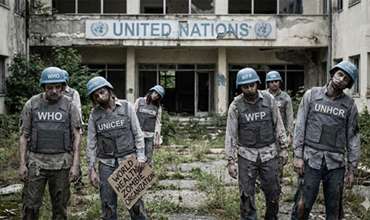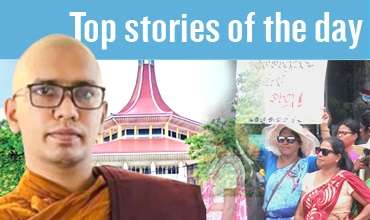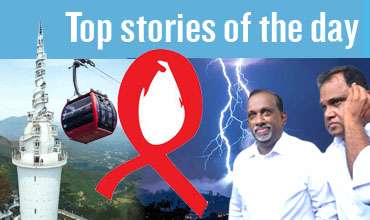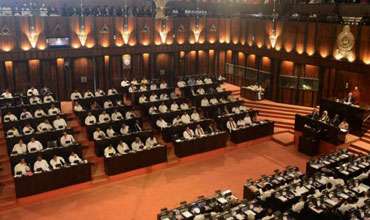UNFPA - Opinion Editorial on International Day of Education
Recognizing Transformative Power of Education
“Education is the premise of progress, in every society, in every family” - Kofi Annan, Secretary General of the United Nations from 1997 to 2006.
The power of education in transforming lives and supporting progress in countries and communities also supports in shaping the future, eliminating poverty, fostering peace, achieving gender equality and addressing pressing global challenges.
On 24 January, the world marks International Day of Education. In 2024, the theme, ‘Learning for lasting Peace,’ is a vital reminder of the importance of education and how it contributes to nation-building and is a fundamental human right, and a shared responsibility in our collective global efforts to create a progressive future for all.
The stark reality, however, is that numerous challenges persist despite its transformative potential; especially in relation to sexual and reproductive health and rights (SRHR) and gender- based violence (GBV), particularly affecting women and girls. Approximately, 244 million children globally remain out of school, with 617 million unable to read or do basic math (UN, 2024).
In Sri Lanka, like many other places, there is a need for urgent action to bridge these gaps.
Harnessing the power of CSE!
At the heart of UNFPA's mission lies the acknowledgment that education transforms lives. It is a catalyst for gender equality, a tool to eliminate child marriage and adolescent pregnancies, a force to empower girls and youth to reach their fullest potential to responsibly exercise their freedoms and rights.
In this context, Comprehensive Sexuality Education (CSE) becomes an indispensable component of quality education for adolescents and youth equipping them with the knowledge and skills needed to make informed decisions about their sexual and reproductive health.
Many young people approach adulthood faced with conflicting, negative and confusing messages about sexuality that are often exacerbated by embarrassment and silence from adults, including parents and teachers. These social norms may perpetuate harmful conditions, such as gender inequality and insensitivity in relation to sexual relationships, family planning and modern contraceptive use.
CSE aims to equip children and young people with knowledge and life skills that encourage positive attitudes, values and behaviors to develop respectful choices and informed decisions about sexual relationships; consider how their choices affect their own wellbeing and that of others; and understand and ensure the protection of their rights throughout their lives. UNFPA, in partnership with the government and partners, remains committed to ensuring that every girl, boy and young person achieves their fullest potential.
In Sri Lanka, the Youth Health Survey (2012) conducted by the Ministry of Health, UNFPA and UNICEF revealed gaps in providing sexual and reproductive health information in schools, underlining the importance of effective CSE. The survey highlighted that only 59% of students received reproductive health education in school.
A key finding of the survey was that 78% of the students identified sexual and reproductive health as a teaching priority in the school curriculum. Moreover, only one third considered current teaching as adequate for satisfactory knowledge about the physical changes in adolescence, pregnancy and the reproductive systems. The survey further found that over 50% of teachers had not participated in any sexual and health training programs and even the trained teachers admitted to lacking sufficient knowledge to discuss sexual and reproductive health issues with students.
Furthermore, according to the latest statistics published by the Family Health Bureau (2022), 3.9% of pregnancies in Sri Lanka are teenage pregnancies. These findings clearly reflect the need for and importance of ensuring CSE is effectively delivered to adolescents and young people in and out of school.
Why is education central to UNFPA?
To bridge these gaps and actively promote better education opportunities on SRHR, UNFPA collaborates with the Government of Sri Lanka to review and implement CSE, ensuring age- appropriate content with a focus on gender sensitivity and cultural relevance.
To deliver CSE in Sri Lanka, UNFPA Sri Lanka engages with stakeholders to strengthen the system for delivery of CSE in secondary schools, strengthen the Ministry of Education School
Health and Nutrition Unit, mobilize and support staff to conduct special sessions on sexual and reproductive health at school level, support the government to strengthen infrastructure for sustained CSE delivery through teacher training colleges, engaging and sensitizing parents among other aspects.
On this International Day of Education, let us unite in prioritizing education as a collective responsibility and a basic human right. Education is an avenue that provides essential skills, boosts employment opportunities, and protects individuals from socio-economic vulnerabilities.
Investing in education, especially for adolescent girls, is an investment for a progressive tomorrow.
As we strive for ‘Learning for lasting Peace,’ let our commitment to education be the cornerstone of a more peaceful, just, and sustainable world, leaving no one behind in the pursuit of knowledge, equality, and empowerment.
by UNFPA Sri Lanka Country Representative Kunle Adeniyi
-
Still No Comments Posted.
















Leave Comments